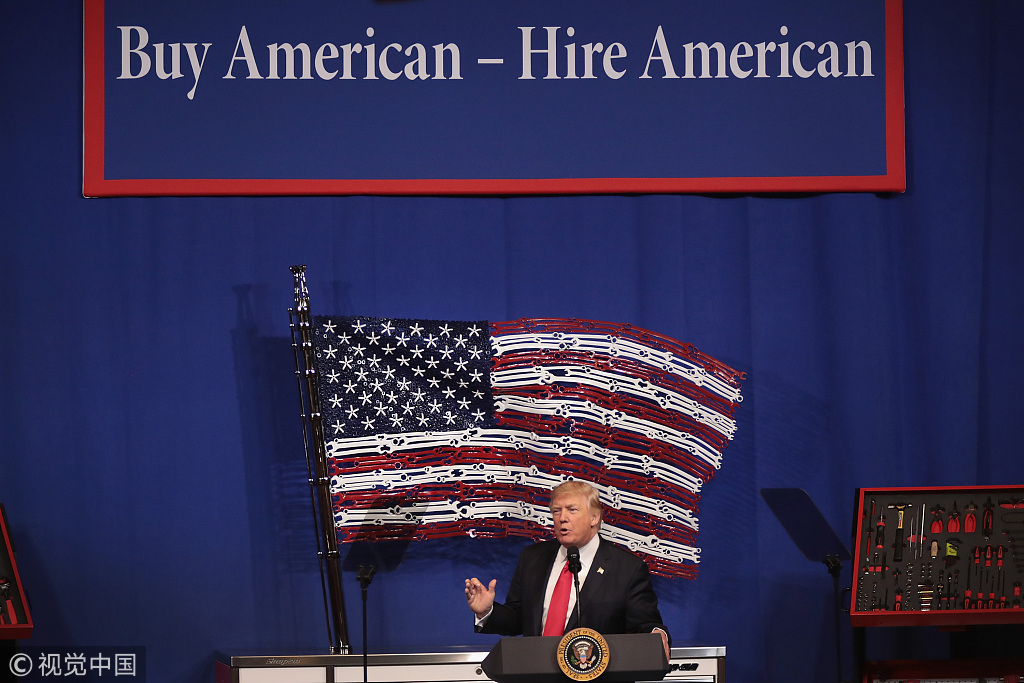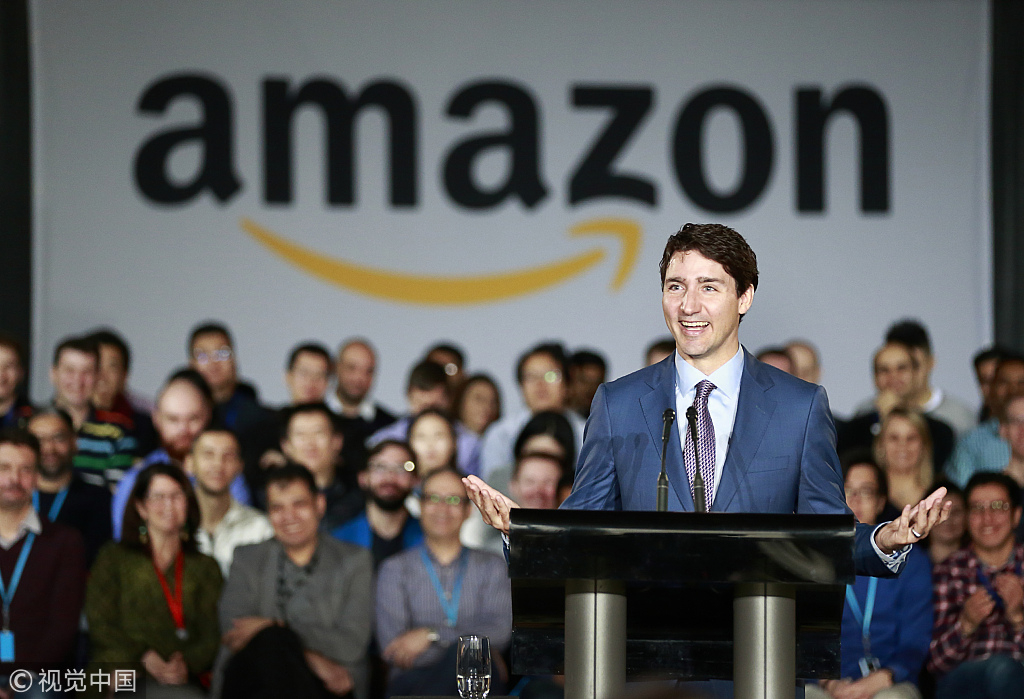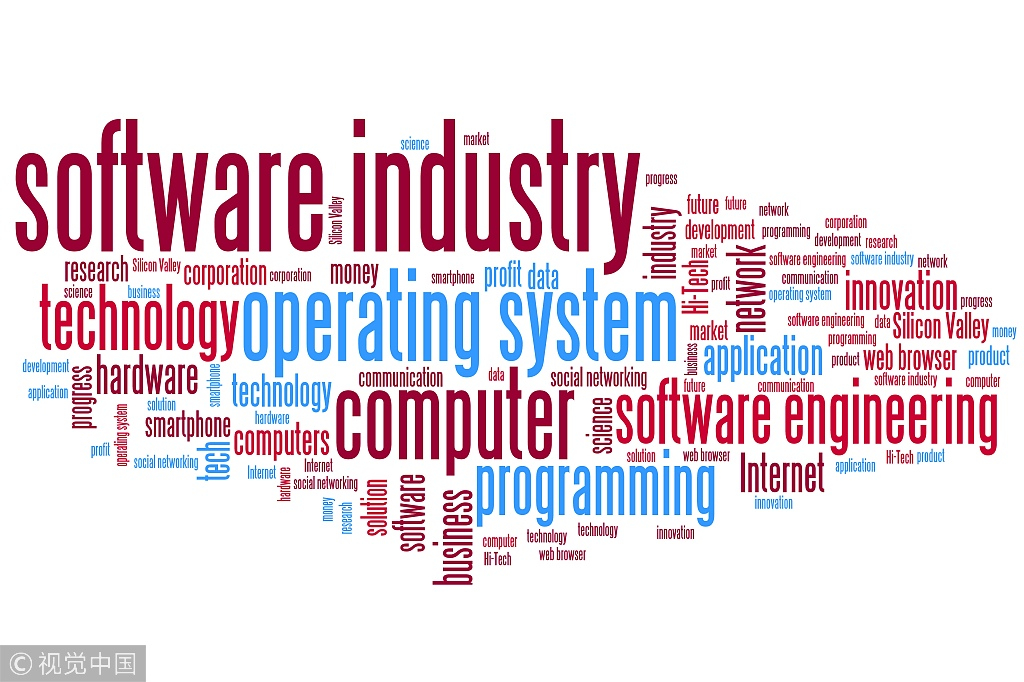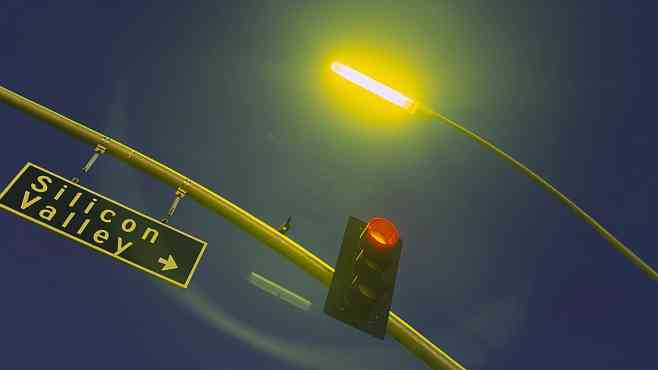The cream of the crop is quietly fleeing the world's biggest melting pot under
Donald Trump's stringent immigration policies.
The U.S. president is currently at an impasse over the Mexico border wall, facing staunch objection from an iron-minded
Nancy Pelosi-led House as well as his own Republicans. “The Wall is getting done one way or the other!” Trump said on Twitter, eliciting warnings from Senate Majority Leader Mitch McConnell about the consequences of another shutdown or a declaration of national emergency.
While the White House and Capitol Hill focus on erecting a physical barrier to immigration, disaffected migrant techies are moving from the American hi-tech center of Silicon Valley northward to Canada – a country eager to lap up the spillover from the elite tech pool. Having an immigration skeptic such as Trump has accelerated this trend.

U.S. President Donald Trump speaks to workers at the headquarters of tool manufacturer Snap-On, April 18, 2017, in Kenosha, Wisconsin, where he signed an executive order to try to bring jobs back to American workers and revamp the H-1B visa guest worker program. /VCG Photo
U.S. President Donald Trump speaks to workers at the headquarters of tool manufacturer Snap-On, April 18, 2017, in Kenosha, Wisconsin, where he signed an executive order to try to bring jobs back to American workers and revamp the H-1B visa guest worker program. /VCG Photo
Americans first, immigrants last
Shifting away from traditional immigration policy, Trump has been shunning migrants through his “America First” doctrine, in which he proposes to protect American workers from foreign competition. Among a barrage of anti-immigration policies like the Mexican wall, rescinding DACA, as well as the travel and work ban on nationals from Muslim-majority countries, the stricter vetting of H-1B visa applications has stood out as a roadblock for migrating nerds.
Over the years, both Silicon Valley tech tycoons and startups have relied heavily on H-1B to employ skilled foreign workers, two thirds of whom are in the computer industry. It has enabled talents like Elon Musk, founder of SpaceX and Tesla, to gain a foothold in the tech hub. But starting last year, the application rejection rate has gone up as Trump seeks to change its lottery-based award system.
A proposed change that would prioritize applicants with master's degrees will decrease the chances for lower degree holders, though it will likely bring in more top tech talent. After all, a degree isn't the only way to measure one's capability.
The U.S. Department of Homeland Security, meanwhile, has formulated a rule entitled “Inadmissibility on Public Charge Grounds,” adding new restrictions on work visas which encompass age, education and employment history, English proficiency, income level, health insurance, tax returns, assets and credit reports. The move is making it harder for tech companies to hire skilled foreign employees.

Canadian Prime Minister Justin Trudeau is surrounded by Amazon employees as he announces that the company will be creating 3,000 jobs during a press conference in Vancouver, Canada, April 30, 2018. /VCG Photo
Canadian Prime Minister Justin Trudeau is surrounded by Amazon employees as he announces that the company will be creating 3,000 jobs during a press conference in Vancouver, Canada, April 30, 2018. /VCG Photo
Pivot to Canada
Worried techies are considering turning to Canada as Justin Trudeau has rolled out a two-week, fast-track employment permit for tech immigrants. As its name – “global skills strategy visa” – denotes, the visa aims to attract talent from all over to facilitate Canada's tech boom. The Canadian government even set up billboards in Silicon Valley reading “H1-B Problems? Pivot to Canada.”
Canada has specifically announced an investment of up to 230 million U.S. dollars for AI-related sectors in the province of Quebec, expecting to create 16,000 jobs within and surrounding this supercluster.
According to David Bier, an immigration policy analyst with Washington-based Cato Institute, Canada received 11 times as many economic immigrants as the U.S. in 2017. All of these initiatives have already taken a toll on the U.S. labor market: just 36 percent of immigrants aged 25 or above are college-educated, far behind Canada's 65 percent, a recent Pew study found.

Hi-tech industries in Silicon Valley. /VCG Photo
Hi-tech industries in Silicon Valley. /VCG Photo
The U.S. risks losing tech crown
Raising the H-IB application threshold has fueled animosity between Trump and Silicon Valley. Tech giants accounting for an aggregated market value of nearly 4 trillion U.S. dollars were founded by immigrants or their children.
Take a look at those with roots from elsewhere: Apple's late founder Steve Jobs is the son of a Syrian immigrant; Google's co-founder Sergey Brin was born in Russia; Facebook's co-founder Eduardo Saverin is from Brazil; Seattle-headquartered Amazon, which operates two labs in Silicon Valley, was founded by Jeff Bezos, whose father came to the U.S. from Cuba not knowing English. “I'll be nothing without my Cuban father,” Bezos said.
A study by the National Foundation for American Policy finds that 50 out of 91 tech unicorns (startups valued at 1 billion U.S. dollars or more) have at least one immigrant founder.

Top tech firms headquartered in Silicon Valley founded by first- or second-generation immigrants. /CGTN
Top tech firms headquartered in Silicon Valley founded by first- or second-generation immigrants. /CGTN
So what will stricter immigration policies cost the United States? The country edged to be the world's No. 1 economy after the two world wars largely because it opened the door to immigrants and prospered due to world-transforming tech businesses.
A mobile revolution commenced when Steve Jobs launched the iPhone. The rest is history. Immigration constraints risk impeding American innovation, causing a labor shortage, slowing down its economy, and also dealing a blow to global hi-tech development.
Canadian prospects
In the light of the U.S. anti-immigration policies, a number of the aforementioned Silicon Valley tech gurus are already establishing labs and production facilities in Canada. Amazon announced plans to build a new headquarters in Vancouver, expecting to create 3,000 hi-tech jobs in e-commerce, cloud computing and machine learning – all critical elements to the fourth industrial revolution. Apple is constructing a futuristic 60,000-square-feet office in downtown Vancouver.
AppDirect, a startup engaged in helping customers sell apps online, said it would create an additional 300 jobs in Canada over the next five years.
Last spring, Axios found through an investigation into 55 tech companies in Toronto that over half of them saw an uptick in interest from U.S. techies, which accounted for 82 percent of all international applicants.

Top five in-demand tech jobs in Canada are developers. /CGTN
Top five in-demand tech jobs in Canada are developers. /CGTN
Several big Canadian cities are undergoing a tech boom. Toronto has set up an innovation hub sponsored by the Canadian government. Over 4,000 kilometers away, Vancouver is expecting an increase in tech occupations from 6 to 10 percent within the next few years.
It's estimated that Canada will see a shortage of 200,000 tech workers by 2020. The country's transparent, express-entry and points-based selection system will help with filling the gap. Of course, Trump's immigration policy could be the finishing drive.
(Infographics by Gao Hongmei)







